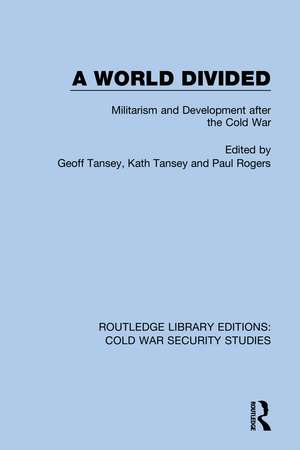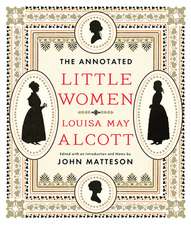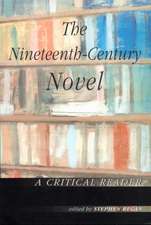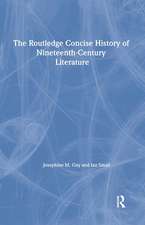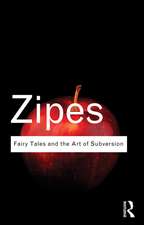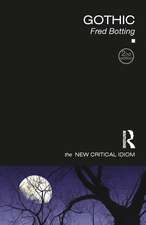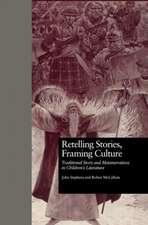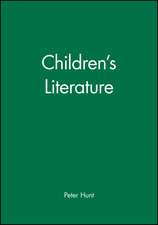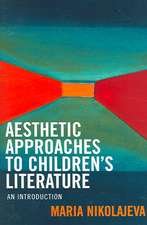Routledge Library Editions: Cold War Security Studies: Routledge Library Editions: Cold War Security Studies
Autor Variousen Limba Engleză Hardback – 27 ian 2021
Din seria Routledge Library Editions: Cold War Security Studies
- 15%
 Preț: 694.42 lei
Preț: 694.42 lei - 18%
 Preț: 784.97 lei
Preț: 784.97 lei - 15%
 Preț: 697.20 lei
Preț: 697.20 lei - 18%
 Preț: 898.00 lei
Preț: 898.00 lei - 18%
 Preț: 784.67 lei
Preț: 784.67 lei - 18%
 Preț: 899.92 lei
Preț: 899.92 lei - 18%
 Preț: 782.92 lei
Preț: 782.92 lei - 18%
 Preț: 896.57 lei
Preț: 896.57 lei - 18%
 Preț: 898.18 lei
Preț: 898.18 lei - 15%
 Preț: 665.08 lei
Preț: 665.08 lei - 18%
 Preț: 1011.64 lei
Preț: 1011.64 lei - 18%
 Preț: 784.18 lei
Preț: 784.18 lei - 18%
 Preț: 782.79 lei
Preț: 782.79 lei - 18%
 Preț: 898.81 lei
Preț: 898.81 lei - 18%
 Preț: 783.25 lei
Preț: 783.25 lei - 37%
 Preț: 597.20 lei
Preț: 597.20 lei - 18%
 Preț: 1010.85 lei
Preț: 1010.85 lei - 18%
 Preț: 1294.67 lei
Preț: 1294.67 lei - 18%
 Preț: 783.10 lei
Preț: 783.10 lei - 18%
 Preț: 897.86 lei
Preț: 897.86 lei - 34%
 Preț: 680.73 lei
Preț: 680.73 lei - 18%
 Preț: 896.44 lei
Preț: 896.44 lei - 18%
 Preț: 782.92 lei
Preț: 782.92 lei - 18%
 Preț: 898.00 lei
Preț: 898.00 lei - 18%
 Preț: 1126.71 lei
Preț: 1126.71 lei - 18%
 Preț: 783.73 lei
Preț: 783.73 lei - 18%
 Preț: 786.41 lei
Preț: 786.41 lei - 15%
 Preț: 696.23 lei
Preț: 696.23 lei - 18%
 Preț: 785.47 lei
Preț: 785.47 lei - 18%
 Preț: 898.63 lei
Preț: 898.63 lei - 18%
 Preț: 898.00 lei
Preț: 898.00 lei - 18%
 Preț: 784.18 lei
Preț: 784.18 lei - 18%
 Preț: 897.38 lei
Preț: 897.38 lei - 18%
 Preț: 899.92 lei
Preț: 899.92 lei - 38%
 Preț: 773.83 lei
Preț: 773.83 lei - 18%
 Preț: 898.81 lei
Preț: 898.81 lei - 15%
 Preț: 696.73 lei
Preț: 696.73 lei - 15%
 Preț: 695.07 lei
Preț: 695.07 lei - 15%
 Preț: 698.03 lei
Preț: 698.03 lei - 18%
 Preț: 783.55 lei
Preț: 783.55 lei - 18%
 Preț: 784.97 lei
Preț: 784.97 lei - 15%
 Preț: 693.63 lei
Preț: 693.63 lei - 18%
 Preț: 787.34 lei
Preț: 787.34 lei - 18%
 Preț: 897.19 lei
Preț: 897.19 lei - 15%
 Preț: 696.23 lei
Preț: 696.23 lei - 18%
 Preț: 784.67 lei
Preț: 784.67 lei - 18%
 Preț: 898.00 lei
Preț: 898.00 lei - 18%
 Preț: 900.06 lei
Preț: 900.06 lei
Preț: 32876.25 lei
Preț vechi: 49520.55 lei
-34% Nou
Puncte Express: 49314
Preț estimativ în valută:
6290.96€ • 6584.80$ • 5235.99£
6290.96€ • 6584.80$ • 5235.99£
Carte tipărită la comandă
Livrare economică 31 martie-14 aprilie
Preluare comenzi: 021 569.72.76
Specificații
ISBN-13: 9780367566302
ISBN-10: 0367566303
Pagini: 17436
Dimensiuni: 156 x 234 mm
Greutate: 32.42 kg
Ediția:1
Editura: Taylor & Francis
Colecția Routledge
Seria Routledge Library Editions: Cold War Security Studies
Locul publicării:Oxford, United Kingdom
ISBN-10: 0367566303
Pagini: 17436
Dimensiuni: 156 x 234 mm
Greutate: 32.42 kg
Ediția:1
Editura: Taylor & Francis
Colecția Routledge
Seria Routledge Library Editions: Cold War Security Studies
Locul publicării:Oxford, United Kingdom
Cuprins
1. A World Divided: Militarism and Development after the Cold War Edited by Geoff and Kath Tansey and Paul Rogers 2. Antiballistic Missile Defence in the 1980s Edited by Ian Bellany and Coit D. Blacker 3. Anti-personnel Weapons SIPRI Stockholm International Peace Research Institute 4. Arms Control and East-West Relations Philip Towle 5. Arms Control Agreements: A Handbook Jozef Goldblat 6. Between McAlpine and Polaris George Giacinto Giarchi 7. British Security Policy: the Thatcher Years and the End of the Cold War Edited by Stuart Croft 8. Burden-sharing in NATO Simon Lunn 9. By Fire and Ice: Dismantling Chemical Weapons While Preserving the Environment David A. Koplow 10. Central European Security Concerns: Bridge, Buffer or Barrier? Edited by Jacob Kipp 11. Chemical Warfare Arms Control: A Framework for Considering Policy Alternatives Julian Perry Robinson 12. Chemical Weapons: Destruction and Conversion SIPRI Stockholm International Peace Research Institute 13. The Cold War and its Origins, 1917-1960. Volume One 1917-1950 D.F. Fleming 14. The Cold War and its Origins, 1917-1960. Volume Two 1950-1960 D.F. Fleming 15. Contemporary Soviet Military Affairs: The Legacy of World War II Edited by Jonathan R. Adelman and Cristann Lea Gibson 16. Contemporary Strategy: Theories and Policies John Baylis, Ken Booth, John Garnett and Phil Williams 17. Conventional Warfare in the Nuclear Age Otto Heilbrunn 18. The Crisis in Western Security Edited by Lawrence S. Hagen 19. The Defence Industrial Base and the West Edited by David G. Haglund 20. The Defence of the Realm in the 1980s Dan Smith 21. Defending Europe: Options for Security Edited by Derek Paul 22. The Defense of Western Europe Edited by Lewis H. Gann 23. East German Army: The Second Power in the Warsaw Pact Thomas M. Forster 24. The East-West Strategic Balance T.B. Millar 25. European Security without the Soviet Union Edited by Stuart Croft and Phil Williams 26. How Russia Makes War: Soviet Military Doctrine Raymond L. Garthoff 27. How War Might Spread to Europe Miroslav Nincic 28. The KGB: Police and Politics in the Soviet Union Amy W. Knight 29. NATO Arms Co-operation: A Study in Economics and Politics Keith Hartley 30. NATO's Changing Strategic Agenda: The Conventional Defence of Central Europe Colin McInnes 31. NATO's Northern Allies: The National Security Policies of Belgium, Denmark, the Netherlands, and Norway Edited by Gregory Flynn 32. New Directions in Strategic Thinking Edited by Robert O'Neill and D.M. Horner 33. Nonoffensive Defense: A Global Perspective UNIDIR - United Nations Institute for Disarmament Research 34. Outer Space - Battlefield of the Future? SIPRI Stockholm International Peace Research Institute 35. Outer Space - A New Dimension of the Arms Race Edited by Bhupendra Jasani 36. The Pattern of World Conflict G.L. Arnold [George Lichtheim] 37. Peaceful and Non-Peaceful Uses of Space: Problems of Definition for the Prevention of an Arms Race Edited by Bhupendra Jasani 38. Problems and Perspectives of Conventional Disarmament in Europe United Nations Institute for Disarmament Research-UNIDIR 39. The Public and Atlantic Defense Edited by Gregory Flynn and Hans Rattinger 40. Red Army and Society: A Sociology of the Soviet Military Ellen Jones 41. Seapower in the Nuclear Age: The United States Navy and NATO 1949-80 Joel J. Sokolsky 42. Securing Europe's Future Edited by Stephen J. Flanagan and Fen Osler Hampson 43. Security and Intelligence in a Changing World: New Perspectives for the 1990s Edited by A. Stuart Farson, David Stafford and Wesley K. Wark 44. The Security Watershed: Russians Debating Defence and Foreign Policy after the Cold War Edited by Alexei G. Arbatov 45. Semialignment and Western Security Edited by Nils Ørvik 46. Soldiers, Peasants, and Bureaucrats: Civil-Military Relations in Communist and Modernizing Societies Edited by Roman Kolkowicz and Andrzej Korbonski 47. Soviet Decisionmaking for National Security Edited by Jiri Valenta and William C. Potter 48. The Soviet Far East Military Buildup: Nuclear Dilemmas and Asian Security Edited by Richard H. Solomon and Masataka Kosaka 49. Soviet Military Doctrine and Western Policy Edited by Gregory Flynn 50. Soviet Military Thinking Edited by Derek Leebaert 51. Soviet National Security Policy Under Perestroika Edited by George E. Hudson 52. Soviet Nationalities in Strategic Perspective Edited by S. Enders Wimbush 53. The Soviet Secret Services Otto Heilbrunn 54. Soviet Strategy Edited by John Baylis and Gerald Segal 55. Soviet Strategy Toward Western Europe Edited by Edwina Moreton and Gerald Segal 56. The Soviet Union and Northern Waters Edited by Clive Archer 57. The Soviet View of War, Peace and Neutrality P.H. Vigor 58. Space Weapons and U.S. Strategy: Origins and Development Paul B. Stares 59. US Troops in Europe Phil Williams 60. The USSR and the Western Alliance Edited by Robbin F. Laird and Susan L. Clark
Descriere
This 60-volume collection is an in-depth analysis of many areas of Cold War Security Studies. The military and political strategies of both NATO and the Soviet Union, and individual countries, are analysed, as are discussions around the difficulties of arms control and chemical weapons. This is a wide-ranging review of the Cold War.
Notă biografică
Various authors.
Original Series Editors:
David Canter is Emeritus Professor at The University of Liverpool, UK. Having set up the first MSc in Environmental Psychology at The University of Surrey in 1972, he went on to establish the Journal of Environmental Psychology in 1980, editing it for 20 years. Soon after he founded the International Association of People-Environment Studies (IAPS). David has published widely on many aspects of human interactions with their surroundings; his 1977 book The Psychology of Place, being one of the most cited publications in the area.
David Stea is Professor Emeritus of Geography and International Studies at Texas State University and Research Associate with the Center for Global Justice in Mexico. As Carnegie Interdisciplinary Fellow at Brown University from 1964 to 1966, he developed the new field of Environmental Psychology and the related study of spatial and geographic cognition. David is a member of the editorial boards of a number of journals, the co-author or co-editor of several books and author of some 150 articles and book chapters on various subjects, including sustainable development and environmental issues in Latin America. In 1987 he was nominated for the Right Livelihood Prize (also known as the “alternative Nobel”) for his international work with indigenous peoples.
Original Series Editors:
David Canter is Emeritus Professor at The University of Liverpool, UK. Having set up the first MSc in Environmental Psychology at The University of Surrey in 1972, he went on to establish the Journal of Environmental Psychology in 1980, editing it for 20 years. Soon after he founded the International Association of People-Environment Studies (IAPS). David has published widely on many aspects of human interactions with their surroundings; his 1977 book The Psychology of Place, being one of the most cited publications in the area.
David Stea is Professor Emeritus of Geography and International Studies at Texas State University and Research Associate with the Center for Global Justice in Mexico. As Carnegie Interdisciplinary Fellow at Brown University from 1964 to 1966, he developed the new field of Environmental Psychology and the related study of spatial and geographic cognition. David is a member of the editorial boards of a number of journals, the co-author or co-editor of several books and author of some 150 articles and book chapters on various subjects, including sustainable development and environmental issues in Latin America. In 1987 he was nominated for the Right Livelihood Prize (also known as the “alternative Nobel”) for his international work with indigenous peoples.
Recenzii
“The timely re-issue of the prescient Ethnoscapes series provides an invaluable contribution to current concerns about built and natural environments. The breadth of coverage of these books, includes public participation in environmental modifications, the impact of housing design on the quality of life, cross-cultural comparisons of placemaking, and the role of building aesthetics on well-being, across many countries and contexts adds up to a treasure trove of innovative research. Now more than ever we need the benefit of the insights and findings of these scholars and professional (many of course who are both) who, over three decades, have studied crucial aspects of interactions between people and their surroundings.”
Ricardo García Mira, Professor of Social Psychology, University of A Coruna, Galicia, Spain. Former Spanish MP.
“The reissued volumes in the Ethnoscapes series were ground- breaking when they first appeared and remain fresh today. These books are essential for understanding how design and the use of space has cultural and human meaning that “artificial intelligence” could never achieve. They offer a vital and timely antidote to mind-numbing apology for the appropriation of civic space and corporate reproduction of McMansions and shopping malls.”
Ben Wisner, Honorary Visiting Professor, University College London, UK.
“The physical aspects of our wonderfully complex world combine with social and psychological factors, to give a myriad of joys and sorrows accompanying our lifeworld activities. To make existence manageable, we need to find order within such chaos. As researchers of all types, but especially social scientists, we are driven to identify networks of causes and effects. This series provides excellent examples of such writing, concerning natural and built environments, from a host of scholars, representing a range of disciplines.”
Andrew Turk, Adjunct Associate Professor, Murdoch University, Western Australia.
“People interested and concerned about how we are interacting with and shaping our built and natural environments will find the insights and findings in this re-issued Ethnoscapes series of great value. Over more than 30 years this accumulated cornucopia of research reveals how important it is to understand the meanings and significance of many aspects of human- environment transactions. These include studies of user involvement in design, with its implications for place-making, as well as crucial explorations of the meaning of home and the role of environmental aesthetics for our wellbeing. Every volume opens new doors, often being the forerunners to major areas of study.”
Arza Churchman, Professor Emerita at Technion- Israel Institute of Technology, Haifa, Israel.
“The re-issue of the Ethnoscapes series provides everyone who cares about human-environment studies a wonderful opportunity to re-acquaint themselves with many groundbreaking efforts in the field. The series provides a wide range of explorations by researchers who have helped to make sense of persons in interaction with their surroundings, and contributed to inspired placemaking”.
Robert Gifford, Professor of Psychology and Environmental Studies, University of Victoria, British Columbia, Canada.
Ricardo García Mira, Professor of Social Psychology, University of A Coruna, Galicia, Spain. Former Spanish MP.
“The reissued volumes in the Ethnoscapes series were ground- breaking when they first appeared and remain fresh today. These books are essential for understanding how design and the use of space has cultural and human meaning that “artificial intelligence” could never achieve. They offer a vital and timely antidote to mind-numbing apology for the appropriation of civic space and corporate reproduction of McMansions and shopping malls.”
Ben Wisner, Honorary Visiting Professor, University College London, UK.
“The physical aspects of our wonderfully complex world combine with social and psychological factors, to give a myriad of joys and sorrows accompanying our lifeworld activities. To make existence manageable, we need to find order within such chaos. As researchers of all types, but especially social scientists, we are driven to identify networks of causes and effects. This series provides excellent examples of such writing, concerning natural and built environments, from a host of scholars, representing a range of disciplines.”
Andrew Turk, Adjunct Associate Professor, Murdoch University, Western Australia.
“People interested and concerned about how we are interacting with and shaping our built and natural environments will find the insights and findings in this re-issued Ethnoscapes series of great value. Over more than 30 years this accumulated cornucopia of research reveals how important it is to understand the meanings and significance of many aspects of human- environment transactions. These include studies of user involvement in design, with its implications for place-making, as well as crucial explorations of the meaning of home and the role of environmental aesthetics for our wellbeing. Every volume opens new doors, often being the forerunners to major areas of study.”
Arza Churchman, Professor Emerita at Technion- Israel Institute of Technology, Haifa, Israel.
“The re-issue of the Ethnoscapes series provides everyone who cares about human-environment studies a wonderful opportunity to re-acquaint themselves with many groundbreaking efforts in the field. The series provides a wide range of explorations by researchers who have helped to make sense of persons in interaction with their surroundings, and contributed to inspired placemaking”.
Robert Gifford, Professor of Psychology and Environmental Studies, University of Victoria, British Columbia, Canada.
